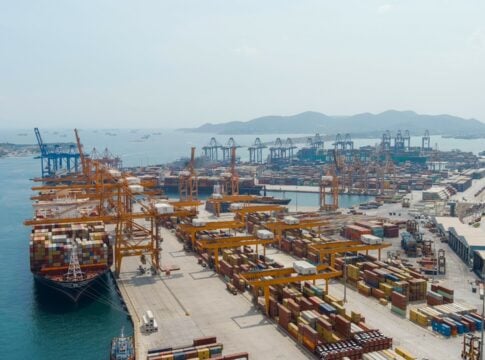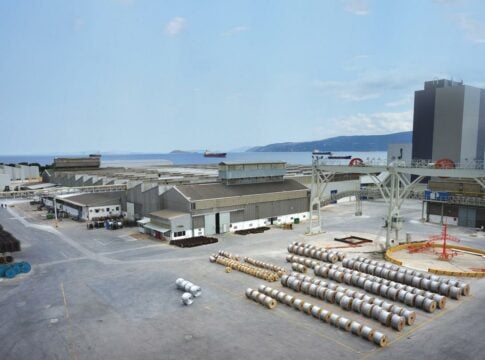The disruptions in global supply chains – particularly with the war in Ukraine and the sanctions imposed on Russia – and the post-COVID trend towards “nearshoring”, initially, and – due to geostrategic balances – “friendshoring” of core manufacturing activities, have cumulatively led to a reduction in the volume of traded goods, to increased costs for commercial activities, but also to supply and demand imbalances, which traditionally create profit opportunities in individual sectors of the shipping market.
At the same time, the period of increased freight rates that followed the pandemic, allowed major shipping companies worldwide to build or buy new ships, with Greek shipowners playing a leading role, as always.
However, the downward trend of globalization – at least as we know it – if it continues, combined with the slowdown of the world economy, is very likely to negatively affect the profitability of the sector in the long term.
Major shipping companies are also facing the significant challenges of the green transition. 2023 is a landmark year for the regulatory environment, with further tightening of targets and requirements for reducing carbon emissions. Many businesses have announced their own ambitious goals towards achieving a zero carbon footprint, while simultaneously investing in fleet modernization. According to the most recent annual report of the United Nations Conference on Trade and Development (UNCTAD), maritime transport, while accounting for more than 80% of global trade, is responsible for only 3% of its carbon dioxide emissions. However, the industry must contribute to the global effort to tackle climate change and is determined to do so.
In this framework, the implementation of sustainable practices will not only contribute to the slowing down of climate change, but, in the long term, it is very likely to lead to cost savings, and therefore a competitive advantage for shipping companies. Those companies that do not move in this direction will face, among other things, risks to their reputation, as stakeholders will increasingly choose to do business with environmentally responsible companies. This includes customers, cargo owners, but also banks and investment funds, which also evaluate companies based on their performance on sustainable development goals and ESG criteria. At the same time, however, we must also focus on the logistics infrastructure, and in particular on the ports and their “green” transformation, on the way to the energy transition.
Beyond geopolitical challenges, sustainable development and climate change, digital technologies are also drastically changing the industry, particularly in areas such as insurance, logistics and back-end services. Artificial intelligence, the Internet of Things, blockchain and data analytics are already helping to streamline and optimize processes, including cargo tracking and ship operations, while digitization has also contributed to real-time data exchange, collaboration, predictability and better informed decision making. Digital technology, however, promises to drastically change the operation of ports, as central points of maritime ecosystems – the utilization of the huge amount of data that we currently have at our disposal, can ensure maritime companies and organizations, time, resources and income.
It is clear that in this environment, shipping companies, in order to remain competitive, need to proceed with their total transformation, which includes, among others, the digital and green transition, cost optimization, the integration of ESG practices and even attracting, training / retraining and managing their people. EY Greece, as a leading service provider in the shipping sector, supports its clients to plan and implement their transformation, focusing on technology, innovation and, of course, human capital.
We are proud to stand by the side of Greek shipping companies and Greek shipowners who constitute role models with radiation and recognition throughout the world. In this particularly critical and demanding juncture, our economy and our society need such standards, which can inspire confidence in our strengths and fuel growth.














